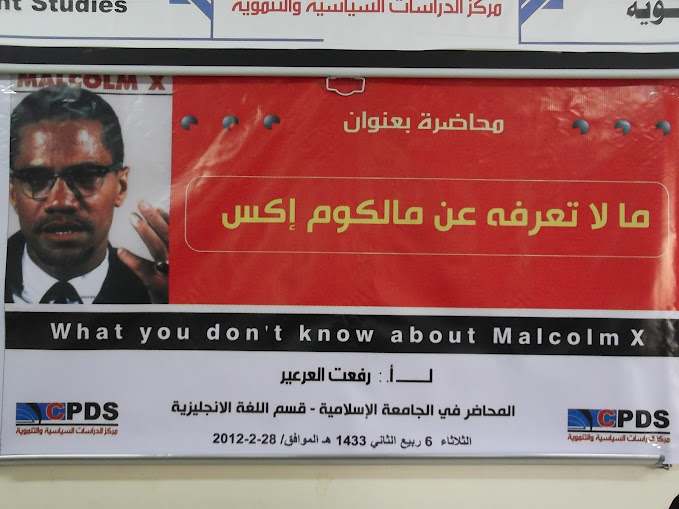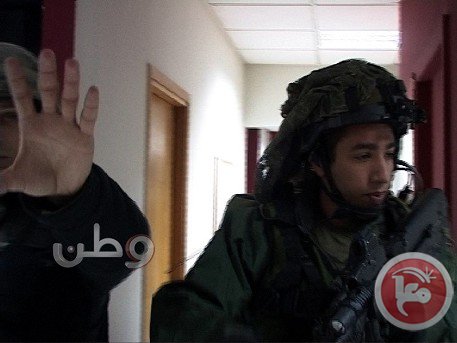Category: In the Media
-
Make some noise: Malcolm X in Gaza
by Joe Catron 29 February 2012 | Alresalah Press At the end of the United States’ Black History Month, one week after the 47th anniversary of Malcolm X’s assassination in New York’s Audubon Ballroom, and another week shy of my first year in Gaza, I attended a talk on X at Gaza’s Centre for Political and…
-
Israel raids Ramallah TV stations
29 February 2012 | Ma’an News Israeli forces raided two Palestinian television networks early Wednesday in Ramallah and briefly detained four employees, journalists said.Soldiers confiscated computers used by editors and reporters in Watan TV’s newsroom and general offices as well as administrative and financial files, the network said. Troops also raided Al-Quds Educational TV in…
-
Clashes and arrests in the town of Tur
by Asmaa Thaher 28 February 2012 | Jerusalem Center for Media Broke out this evening clashes in the town of Tur East Jerusalem and the occupation forces arrested two young men from the region. Our correspondent said that the clashes broke out near Al-Maqased hospital and Tur club down to the Sawwanah neighborhood crossroads. He…


